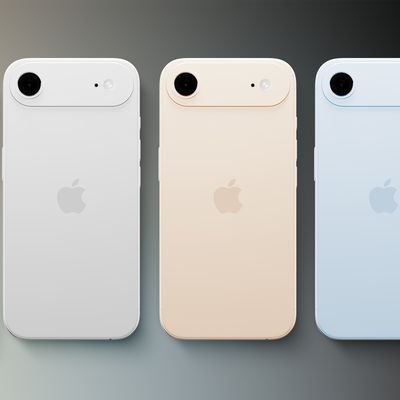Google has received approval from the European Union for its planned purchase of Motorola Mobility. This is one of a number of governmental approvals that Google needs before the purchase can continue, including sign-offs from the governments of Israel, Taiwan, China, and the United States. The U.S. Justice Department is expected to approve the acquisition this week.
The EU executive, which acts as the competition regulator for the 27-member European Union, said the deal would not significantly change the market for operating systems and patents for these devices.
"We have approved the acquisition... because upon careful examination, this transaction does not itself raise competition issues," EU Competition Commissioner Joaquin Almunia said in a statement.
But Almunia said he was worried about the possibility of abuse of patents by Google and other firms now involved in a series of legal disputes over intellectual property rights.
Last year, Google announced its would acquire Motorola Mobility for $12.5 billion. If the acquisition proceeds, Google would gain control of thousands of Motorola's wireless patents, along with its handset manufacturing business, among a number of other components.
Google would also take charge of a number of lawsuits that Motorola is currently participating in, including a number involving Apple.
Update: The United States Department of Justice has signed off on the acquisition as well.






















Top Rated Comments
It's not evil, just necessary if you're in the corner of supporting Android to it's fullest potential.
It appears that Google needs to acquire Motorola Mobility in order to expand it's patent portfolio and protect it's future product devices from legal attacks. I don't personally care much for the Android platform but this seems to make sense from a Google business perspective.
Google wouldn't officially state that. They'd want to string Samsung along, since they're crushing all other Android hardware makers (at the high end.) Some people have said that Samsung could dictate Android features and strategy to Google because their slice of the Android pie is biggest. But when it comes down to it, I doubt Google would favor Samsung over Motorola Mobility, despite Samsung's dominant position among Android device makers. And Samsung would likely tire of constantly complaining about missing features and/or conflicting Android roadmap wish lists.
If Samsung decides that Google is favoring Motorola or ignoring their feature requests or otherwise doing something with Android that doesn't line up with Samsung's strategy, they could "pull an Amazon." They could easily create their own custom, proprietary, closed fork of Android. Like Amazon did with Kindle Fire.
It would be catastrophic for Google if the leading Android hardware maker created their own fork of Android and ignored subsequent releases from Google. Especially if, like Amazon, Samsung's fork of Android didn't send customer information back to Google. Customer info is what many of the major tech companies and e-tailers are fighting over. It's a gold mine.
Android's main purpose, from Google's perspective, is to serve as a platform for ads. And knowing each user better is the key to serving up more relevant ads to them. Android's main purpose, from Amazon's perspective, is to generate sales of physical and digital goods from Amazon.com. Amazon tracks customers' sales histories, product affinities, and browsing patterns with their proprietary Silk browser. And they send none of that back to Google. Amazon learns more and more about their Kindle Fire customers. Google doesn't. Too bad, since Kindle Fire now dominates the low-end Android "padlet" market.
Samsung could do the same. Fork Android, customize it, and fine-tune it for their specific hardware. Then, over time, Samsung could work on building an iTunes-like, App Store-like, iCloud-like infrastructure. It would add value to Samsung products the way Apple's infrastructure adds value to iDevices and Macs. And Samsung's infrastructure would help them understand their customers better, to yes, serve up more relevant ads to them. Completely independently from Google.
So where would Motoroogle end up after all this? After Samsung runs off with their own proprietary, closed, optimized version of Android? Well, I suppose there could be a "reference" Android RAZR phone every few years, running the vanilla version of whatever Android release is current. And I suppose they would be about as successful as the Nexus phones have been so far.
Worth $12.5 billion? Hardly.
Competition is good. Now, there is another competitor who replaces Nokia having software and hardware in-house. I don't think they are evil just because they take the next step to advance.
Apple and Google could actually grow up, cross-license their patents and reserve new patents for the first 6 months or so and then thrive the technology on mobile devices. Just immagine the possibilities: 2 American companies competing for having the last notch on each other's device! Would not be the first time: Intel and AMD, for example, cross license things like 64bit, SSE, etc. and together rule the market on PC - and even Apple cannot go past those two when it comes to desktop and server processors. Granted, they faught each other in court, but overall, they support each other with cross-licensing.
http://www.engadget.com/2012/02/13/doj-greenlights-bid-by-apple-microsoft-and-rim-to-buy-nortel-pa/#continued
I see an interesting war brewing.